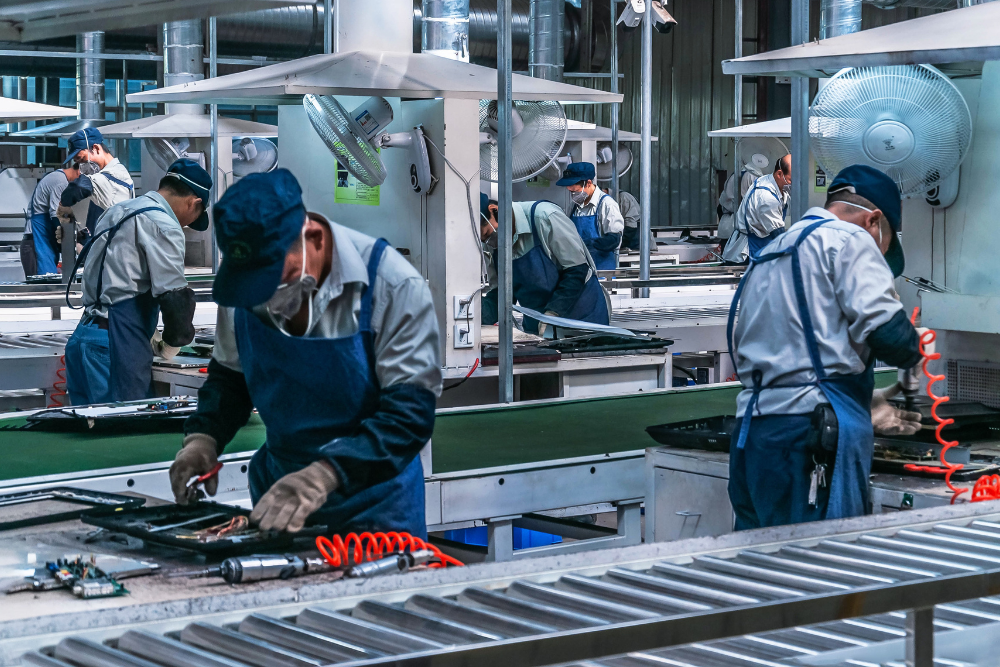In the world of modern healthcare, precision, reliability, and quality are paramount. Medical CNC (Computer Numerical Control) machining services play a crucial role in manufacturing highly precise components for Medical CNC Machining Services and instruments. These services support the development of products that save lives, assist in complex surgical procedures, and enhance patient care.
Medical CNC machining refers to the process of using advanced CNC equipment to fabricate intricate medical parts from various materials such as titanium, stainless steel, plastics, and specialty alloys. It ensures exact tolerances, sterile-quality finishes, and consistent performance.
Importance of CNC Machining in the Medical Industry
CNC machining is indispensable in the medical field for several reasons:
-
Precision and Accuracy: CNC machines operate with extremely tight tolerances, making them ideal for creating components used in surgical instruments, implants, and diagnostic tools.
-
Repeatability: Medical components must be uniform and defect-free; CNC machining provides consistency across production runs.
-
Material Compatibility: CNC machines can process biocompatible and corrosion-resistant materials like titanium, PEEK, and surgical-grade stainless steel.
-
Regulatory Compliance: The machining process can be documented and monitored to meet strict medical regulatory standards (e.g., ISO 13485, FDA).
Applications of Medical CNC Machining Services
Medical CNC machining serves a wide variety of healthcare applications, including:
1. Surgical Instruments
Manufacturing complex tools such as forceps, scissors, clamps, retractors, and scalpels requires extreme precision. CNC machining ensures optimal sharpness, strength, and reliability.
2. Orthopedic Implants
Implants such as hip joints, spinal cages, bone screws, and plates demand bio-compatibility and durability. CNC machining ensures these parts meet stringent medical standards and fit perfectly.
3. Dental Devices
Crowns, bridges, abutments, and custom dental implants can be crafted with high accuracy using CNC machining technologies, particularly in small-scale and high-volume production.
4. Prototyping for Medical Devices
Rapid prototyping through CNC machining accelerates product development for new medical devices. Engineers and manufacturers can test multiple iterations efficiently.
5. Diagnostic Equipment Components
Parts for MRI machines, CT scanners, and blood analyzers require non-magnetic, corrosion-resistant materials and tight tolerances — all achievable with CNC machining.
6. Micro Machining for Minimally Invasive Tools
Minimally invasive surgical tools demand ultra-small components. CNC micro-machining enables the creation of fine features with high accuracy, improving patient outcomes and reducing trauma.
Materials Used in Medical CNC Machining
A wide range of materials are used in medical CNC machining depending on the application:
-
Titanium – Strong, lightweight, and biocompatible; perfect for implants and instruments.
-
Stainless Steel (316L & 304) – Corrosion-resistant and sterilization-friendly.
-
PEEK (Polyetheretherketone) – A medical-grade plastic for spinal implants and surgical instruments.
-
Aluminum – Lightweight and cost-effective, suitable for diagnostic equipment housing.
-
Cobalt-Chrome Alloys – Used in joint replacements and dental prosthetics.
Key Capabilities of Medical CNC Machining Services
A quality CNC machining service for the medical industry should offer:
-
Multi-axis Machining (3, 4, 5-axis) for complex geometries
-
Tight Tolerances (±0.001mm) to meet surgical-grade standards
-
Surface Finishing Options including polishing, passivation, anodizing, and bead blasting
-
Cleanroom Manufacturing for contamination-free components
-
Custom Prototyping and Short-Run Production
-
CAD/CAM Integration for efficient and precise manufacturing
Quality Control and Certifications
Given the critical nature of medical components, strict quality control protocols are mandatory. Reputable CNC machining providers will implement:
-
Inspection and Metrology Tools such as CMM (Coordinate Measuring Machines)
-
Traceability Systems for lot tracking
-
Certifications such as:
-
ISO 13485 – Quality management for medical devices
-
ISO 9001 – General quality management
-
FDA Registration – For companies manufacturing FDA-regulated products
-
Advantages of Choosing Professional Medical CNC Machining Services
-
High Precision and Consistency
-
Scalability from Prototyping to Mass Production
-
Reduced Time-to-Market
-
Compliant with Medical Standards
-
Access to Advanced Equipment and Expertise
Industries Served Within the Medical Sector
Medical CNC machining supports a range of healthcare specialties, including:
-
Orthopedics
-
Cardiology
-
Neurosurgery
-
Dental and Maxillofacial
-
Ophthalmology
-
Veterinary Medicine
-
Diagnostic Laboratories
Choosing the Right CNC Machining Partner
When selecting a CNC machining service provider for medical applications, consider the following:
-
Experience in the medical industry
-
Access to advanced machinery and technology
-
Strong quality assurance and regulatory compliance record
-
Ability to scale production efficiently
-
Support for design optimization and prototyping
Partnering with a trusted CNC machining company ensures the reliability and performance of critical medical components, reducing risk and enhancing patient safety.
Conclusion
Medical CNC machining services are essential to the advancement and reliability of modern healthcare solutions. From life-saving surgical instruments to highly precise implants and diagnostic tools, the demand for precision and consistency in the medical industry makes CNC machining an invaluable process.
By leveraging cutting-edge machinery, biocompatible materials, and strict quality control standards, CNC machining providers enable healthcare professionals to deliver exceptional care with safe, reliable, and high-performing medical devices. Choosing the right partner for your medical CNC machining needs ensures success in innovation, patient outcomes, and regulatory compliance.



